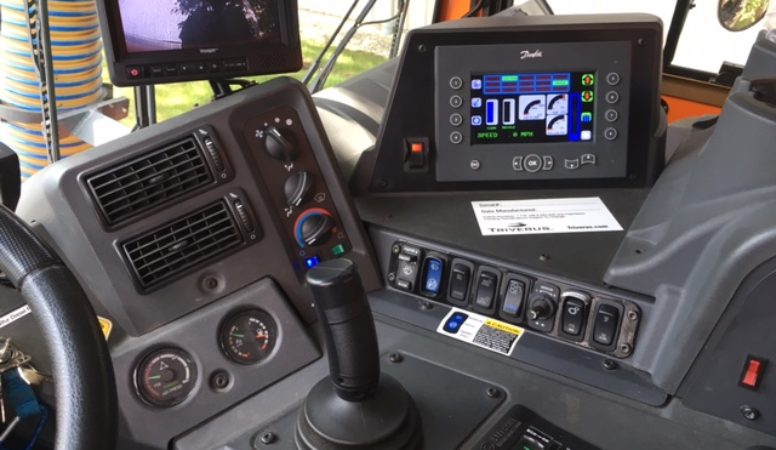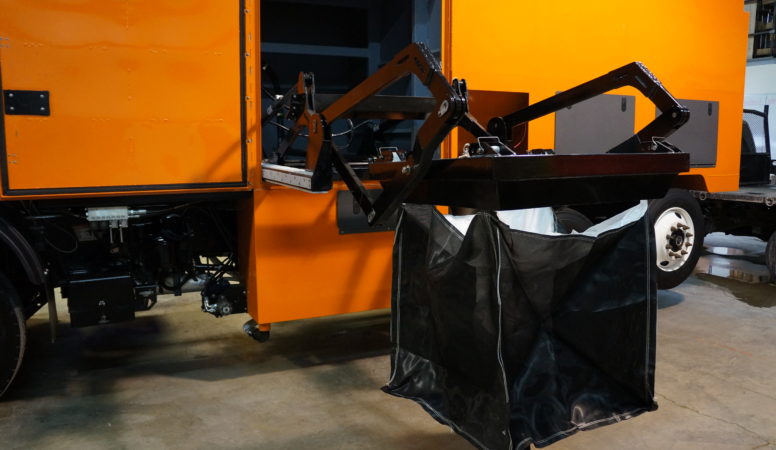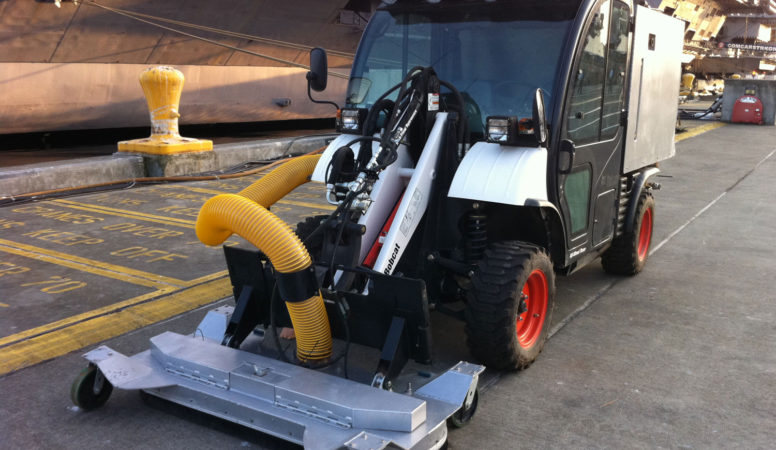What is “high-efficiency surface cleaning” and why is it important to your operations? At Triverus, high-efficiency surface cleaning means achieving the best results using fewer resources, and with minimal damage to surfaces. Our proprietary surface cleaning machine technology, developed with the Office of Naval Research, uses only pressurized water (no chemicals) to safely deliver the best results available.
Triverus’ Surface Cleaning Technology is Purpose-Built
Unlike most offerings available in the marketplace, Triverus’ surface cleaning machines are designed and built for the sole purpose of surface cleaning. For example, the Triverus cleaning apparatus is in front of the vehicle in view of the operator, not behind the operator in the middle of the vehicle, as is common with most systems added on to a commercially available unit. Triverus’ purpose-built designs yield wider cleaning paths (the Triverus MCV features the widest in its class), single-pass cleaning capabilities, smaller platforms with more maneuverability, single powerplants, and quick waste removal times. With Triverus surface cleaning machines, your organization will benefit from uncompromised surface cleaning capabilities.
Our Customers Benefit from OEM-Level Integration
In addition to being purpose-built, Triverus’ surface cleaning machines are expertly integrated into the most robust and versatile platforms available today from Bobcat and Mack Trucks. This OEM-level integration means a readily maintainable chassis, reduced maintenance costs, and peace of mind for your operations.
Cleaning and Recovery Results
Triverus’ surface cleaning technology utilizes a low-noise, low-pressure recovery technology that allows all our platforms to be power and width efficient. This translates into exceptionally clean surfaces from not only larger recoverable particles, but hard-to-recover sub-micron particles that contribute to stormwater pollution. All of this yields minimal damage to surfaces, meaning reduced costs and liability for your operations. Our machines recover what other machines leave behind.
Frequently Asked Questions:
- How does the Triverus technology strip pollutants from the pervious pavement but not remove paint markings?
Water spray pressure during normal MCV operations is approximately 3500 psi. The energy applied to the hard surface being treated at these pressures is absorbed by everything in its path. While this is orders of magnitude more energy than is applied to the surface by conventional street sweeper technology with vacuum, regenerative air, or otherwise, the applied energy at this pressure cannot overcome the tensile strength of well applied and healthy paint. It can, however, displace failing and chipping paint that is partially released from the pavement, making it a great surface prepping prepaint system as well. Pervious asphalt, conventional asphalt, porous concrete, and conventional concrete have higher tensile strength still, so are not affected by the MCV water spray.
- How does high-pressure water without added chemicals effectively clean?
Triverus cleaning technology relies on the relatively massive kinetic energy applied to the surface being cleaned. When the energy, in the form of pressurized water, is applied to the contaminated surface, the energy is transferred to all material with which it collides. The transferred energy agitates the material. The reaction is that the material wants to move away from the energy source. If the amount of energy can overcome the tensile strength of the surface adhesion, the simultaneous vacuum provides the material the easiest path to escape.
- How did research develop for aircraft carrier flight deck cleaning in conjunction with the US Navy benefit transition to benefiting commercial markets?
Although an aircraft carrier deck will have significantly more oil and fuel contamination than a typical city street, it is still a contaminated hard surface. The genius of the Triverus technology is to focus on the physical reaction associated with the application of high levels of energy to the hard surface. The pressurized water is the means of applying the energy. When excited, the contaminants want to move. The simultaneous vacuum captures the material for containment and disposal. This physical reaction is universal in the world as we know it. The biggest difference between the cleaning machinery built for aircraft carrier decks and the onshore municipal application is the choice of an operator-friendly multi-purpose vehicle as the carrier.
- Can the Triverus MCV clean pervious pavement as well as pervious pavers?
Yes! The Triverus MCV uses a combination of high pressure washing and simultaneous vacuum recovery that is effective in pervious pavers as well as pervious concrete and asphalt. With pavers, however, the cleaning process will remove the upper layers of aggregate that must be replaced as part of the cleaning process.



